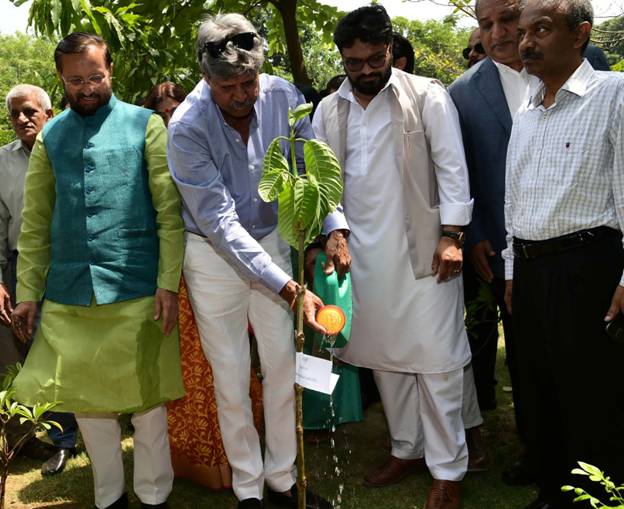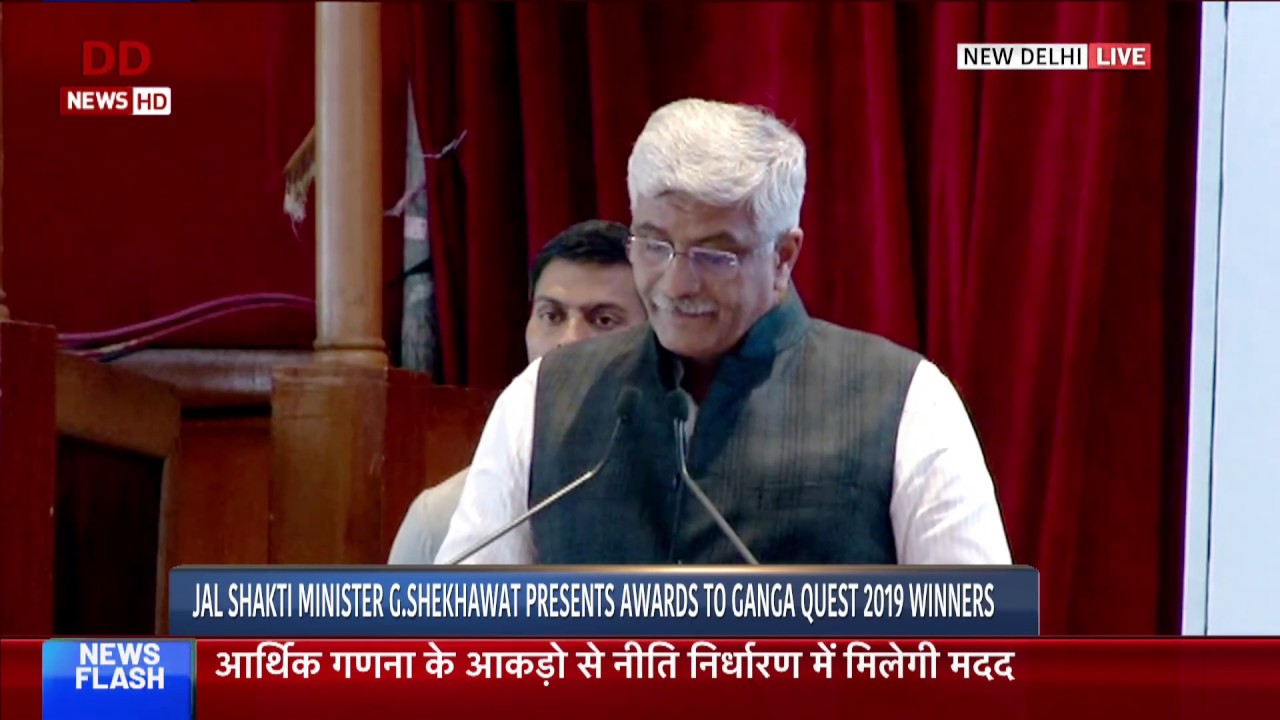Union Minister for Environment, Forest and Climate Change and Information & Broadcasting, Shri Prakash Javadekar, announced a new nationwide initiative called School Nursery, aiming to foster a lifelong bond between school children and plants. Under this initiative, children will plant seeds, nurture saplings, and receive the grown plant as a trophy along with their annual exam results. The local forest departments will provide necessary support to schools.
To mark the launch, Shri Javadekar planted saplings at the Environment Ministry premises in New Delhi alongside Minister of State Shri Babul Supriyo, cricket legend Shri Kapil Dev, Bollywood actors Shri Jackie Shroff and Shri Randeep Hooda, and noted singer Smt. Malini Awasthi. They jointly urged citizens to plant saplings and share their #SelfieWithSapling on social media, promoting awareness for environmental protection.
Speaking to the media, Shri Javadekar emphasized the importance of Jan Bhagidari (people’s participation) in tackling environmental challenges, calling environment protection a people’s movement. He stressed, “For the oxygen an individual requires, one should plant at least 8-10 saplings in their lifetime.”
He also lauded Union Transport Minister Shri Nitin Gadkari’s pledge to plant 125 crore trees along both sides of National Highways spanning thousands of kilometers.
World Environment Day 2019: Focus on Air Pollution
World Environment Day (WED), held every year on 5th June, is the largest global platform for environmental awareness and action. This year, China is the host country, with the theme “Air Pollution” — the most serious environmental health risk today.
Air pollution contributes to about one-third of deaths from stroke, chronic respiratory disease, and lung cancer, and one-quarter of deaths from heart attack.
It also accelerates climate change and harms planetary health.
Last year, India hosted WED focusing on plastic pollution prevention.
Air Pollution Facts
92% of people worldwide breathe polluted air.
Air pollution costs the global economy $5 trillion annually in welfare losses.
Ground-level ozone pollution is expected to reduce staple crop yields by 26% by 2030.
India’s National Clean Air Programme (NCAP)
India has launched the National Clean Air Programme (NCAP), a long-term, time-bound national strategy to tackle air pollution across the country. The key objectives include:
Prevention, control, and abatement of air pollution.
Augmentation of the air quality monitoring network.
The tentative national target is to reduce PM2.5 and PM10 concentrations by 20-30% by 2024. This year’s WED focuses on 102 identified non-attainment cities where pollution levels exceed prescribed limits.


